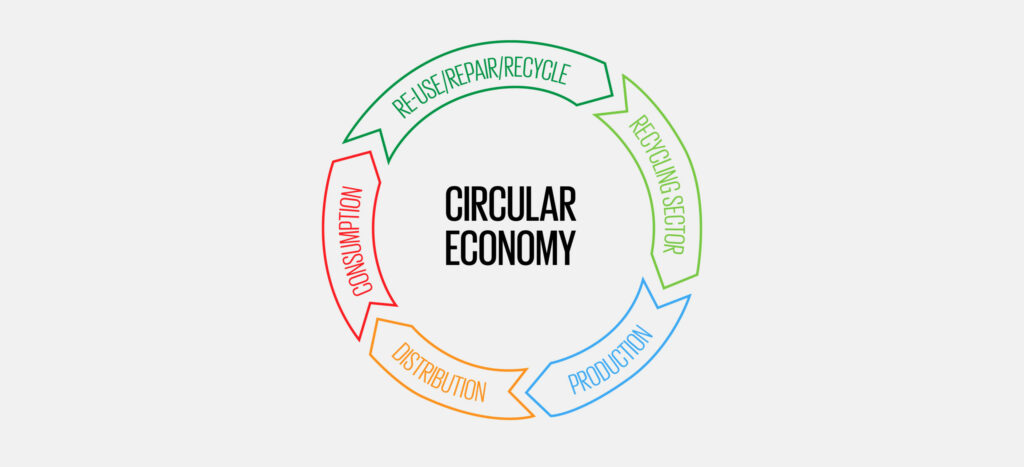This weeks focus will be on repairing in the modern society and community repair. It will be based on the research paper ‘Fixing the World One Thing at a Time’: Community repair and a sustainable circular economy written by Maja van der Velden.
REPAIRING AND CIRCULAR ECONOMY
A circular economy is a system that focuses on reducing waste and maximizing the use of resources. It emphasizes recycling, reusing, and regenerating products. In a circular economy, materials are kept in a continuous loop, promoting sustainability and minimizing environmental impact.
One of the ways to achieve circular economy is through repairing. Extending the life time of popular consumer goods can lead to large sustainability gains. The role of repair in circular economy is growing, but no country has set specific targets for repair (van der Velden, 2021). The number of repair enterprises in France decreased from 2461 in 2009 to 1942 in 2013 (van der Velden, 2021).
A challenge for the repair technicians is that consumers are less willing to repair low-priced products which leads to a decreasing demand for repair. Another challenge is that many products are designed in a way that makes them difficult to open and therefor repair.
The European Commission mentions the „right to repair“ of citizens in two of its primary policies related to sustainable production and consumption. EU created a standard for repairability labelling of products in 2019 (van der Velden, 2021).

COMMUNITY REPAIR
Community repair is a non-profit event which involves people coming together to fix items, such as electronics, appliances, or clothing, within a local setting. It’s a collaborative effort where community members share skills and knowledge to repair and extend the lifespan of items. This practice fosters a sense of community engagement and environmental responsibility.
The first community repair initiatives started in 2009, two in the US and one in the Netherlands (van der Velden, 2021). Since then, the movement has expanded and as of October 2020 there were 2091 Repair Cafes in 37 countries (van der Velden, 2021). Some of the Repair Cafes have fixed place for repair events, while others are organized as pop-up events. There is for example a Repair Cafe in Graz (and multiple others in the area) that arranges regularly events every two months.
RepairMonitor
RepairMonitor is a website that the Repair Cafes can use as a tool to document the repairs they implement. It is a way to collect and share repair data and a way to gain insight into the durability and reparability of the items in our daily lives.
Here is an overview over the amount of repairs through the years and where the Repair Cafes that are using RepairMonitor are located. The amount of repairs is varying but there is an overall tendency that it increases through the years, but the amount amount of Repair Cafes using this platform has also been increasing. 44 Repair Cafes were using RepairMonitor in 2018, while 167 Repair Cafes were using RepairMonitor in 2023. So the amount of Repair Cafes documenting on RepairMonitor has increased significantly, and the amount of documented repairs has therefore also increased.

REPAIR AND ATTATCHMENT
Research on product attachment indicates that a significant level of attachment is usually reached once a product has been used or owned for more than five years. Consumer product attachment is typically at its lowest after the first three years post-purchase, and then gradually increases over time (van der Velden, 2021).
Attachment to our belongings often drives us to repair rather than replace them. Fixing items creates a sense of connection and care, fostering a sustainable mindset by extending the life of possessions and reducing waste.
🩴 🥿 👠 👡 👢 👞 👟 🥾 🩴 🥿 👠 👡 👢 👞 👟 🥾 🩴 🥿 👠 👡 👢 👞 👟 🥾 🩴 🥿 👠 👡 👢 👞
References
- van der Velden, M., & AbstractThe notion of a circular economy is often presented in discourses on a more sustainable future. A circular economy proposes more efficient material flows in growth-based economy and in support of sustainable development. Repair is presented as one. (2021, April 16). “fixing the world one thing at a time”: Community Repair and a sustainable circular economy. Journal of Cleaner Production. https://www.sciencedirect.com/science/article/pii/S0959652621013706
- Dashboard Repairmonitor. (n.d.). https://dashboard.repairmonitor.org/?language=en